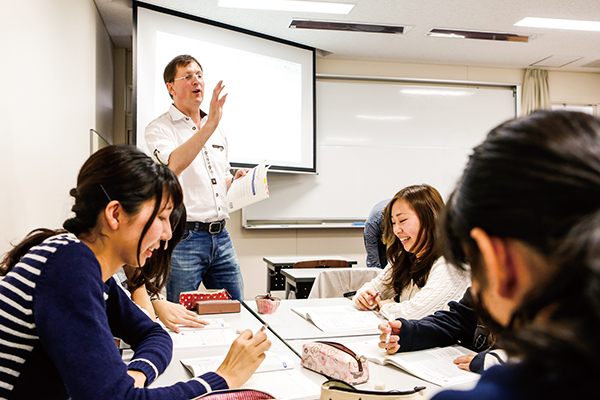
In school history textbooks, Germany is often described in terms of its militaristic and nationalistic past. Yet, historically, if we consider Germany’s achievements in the fields of literature, music, and art, we see how vast its contribution to the development of European civilization is. Looking at contemporary Germany and its development also helps us understand the emergence of a new world order in the wake of the collapse of the Berlin Wall and the ensuing thaw in post-Cold War East-West relations. As the major economic and technological force in the European Union, located in the center of Europe, Germany is expected to play a leading role in the EU’s future. Studying about Germany enables us to learn about the roots of European civilization and to consider the nature of future society. The first and second years in the Department are largely devoted to the acquisition of language skills, with frequent reference made to English, which shares many features with the German language. From the third year on, students have the opportunity to pursue specific interests by choosing courses offered on the language, literature, history, thought, society, and economics of Germany and the German-speaking world.

Features of the Department
- The first two years are dedicated to an intensive study of the German language intensively, with thorough practice of the basic language skills ー speaking, listening, reading, and writing.
- For maximum efficiency, language courses are taught by both Japanese and native German-speaking instructors.
- From the third year on, students are offered a broad range of seminars in the fields of literature, language, economics, politics, history, philosophy, and sociology.
- Throughout the four years of study in the Department, students enjoy individual attention through small class sizes and a personal academic advisors system, providing them with the creative environment necessary to develop their ideas.
